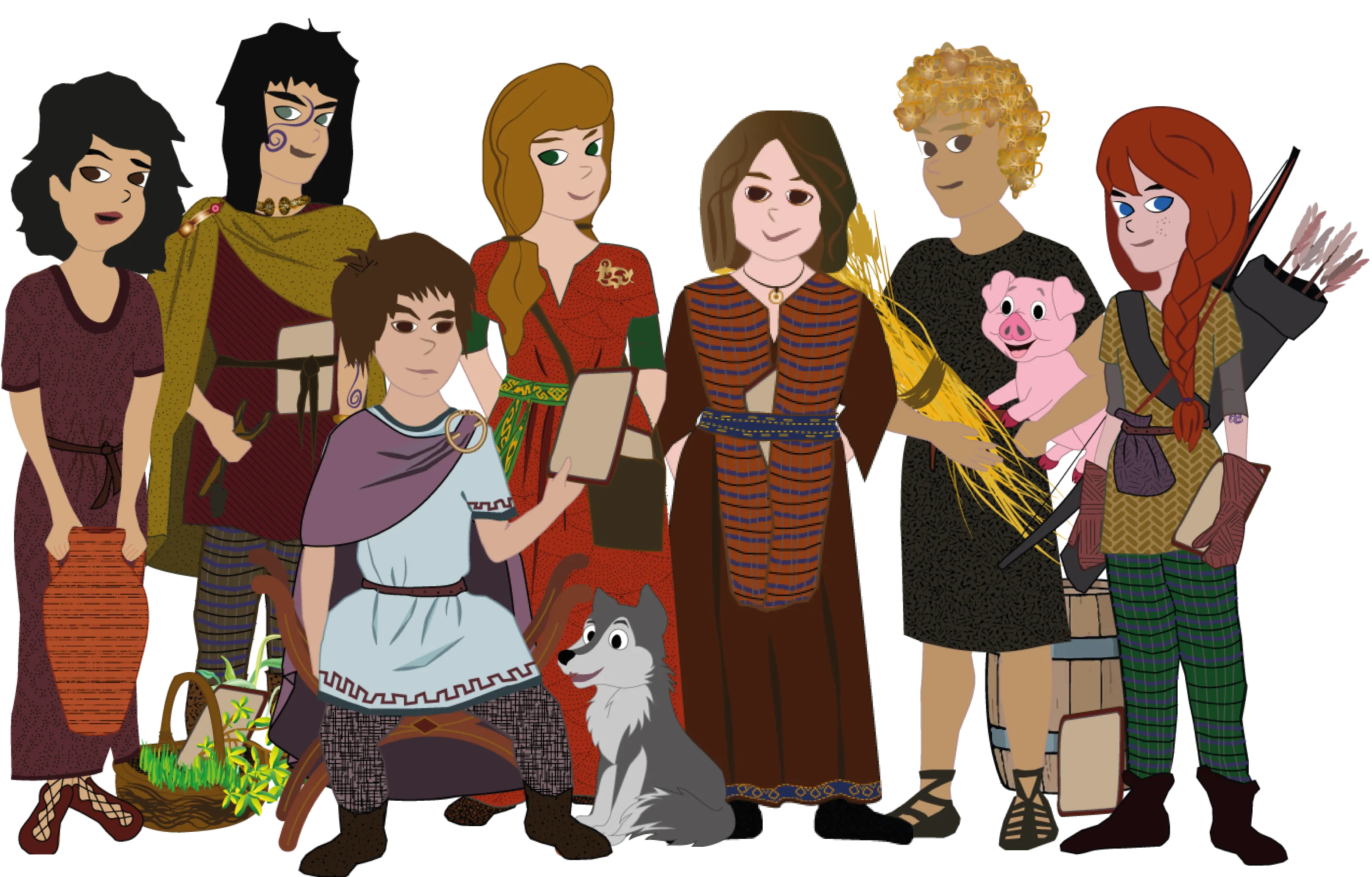
By offering fresh insights into the UK’s Iron Age and Roman eras, the app can build greater understanding, acceptance and respect for others, Dr Chiara Bonacchi says.
The web-based tool helps educators encourage children to consider perspectives that are more subtle and nuanced than those often presented at heritage sites, according to Dr Bonacchi.
The app is informed by research undertaken with Durham University, which shows perceptions can be skewed by an overemphasis on conflict.
It can also be distorted by a reliance on caricatures and exaggerated images of one period in contrast to the other, the research team says.
Early impressions
The study’s findings suggest people often draw on these early impressions, learned in childhood, to justify antagonism towards particular groups of people in later life.
For example, museums, books and films can often reinforce stereotypes by setting ‘barbaric’ Iron Age people against ‘civilising’ Romans, the study found.
Mobile, multicultural all-conquering Romans are frequently contrasted to spiritual, peaceful, environmentally sustainable – but sometimes barbaric – indigenous Iron Age people.
Rounded approach
The Chatterpast app, by contrast, introduces children to more rounded historical characters, who are living in locations and at times that reflect the complex nature of ancient societies.
It allows users to interact with a range of imaginary young characters from different Iron Age and Roman times, encouraging them to exchange ideas and information in an engaging way.
Designed in partnership with nine UK heritage venues, it is intended to provide a training resource for primary school teachers and education teams at visitor attractions.
The project, led by Dr Bonacchi and archaeologists Dr Kate Sharpe and Professor Richard Hingley from Durham University, has also included input from Liverpool Hope University.
Tolerant Futures
Chatterpast is part of a wider project called Co-producing Tolerant Futures through Ancient Identities, which is funded by the UK Arts and Humanities Research Council.
The project team has also created a digital experience for adults, called Tolerant Futures, which lets them share how their views of the past and present are often connected.
It is being displayed at Tullie House Museum in Carlisle, the Great North Museum in Newcastle and The Hunterian, in Glasgow.
Dr Bonacchi, of the University’s School of History, Classics and Archaeology, says: “Chatterpast is intended to help teachers and educators discuss tolerance through presentations that challenge entrenched, binary ideas about Iron Age and Roman pasts.
Dr Kate Sharpe says: “We hope to encourage discussion about how our experience and understanding of the past influence the ways in which we perceive ourselves and others in the present.”
Related links
School of History, Archaeology and Classics
Illustrations by Dr Kate Sharpe

